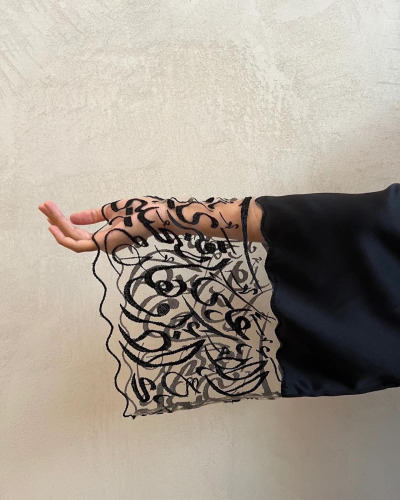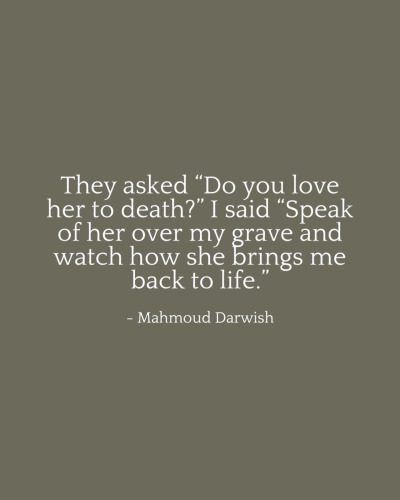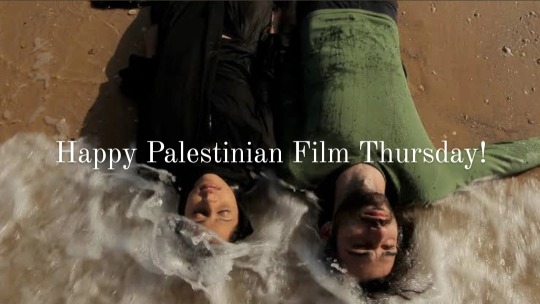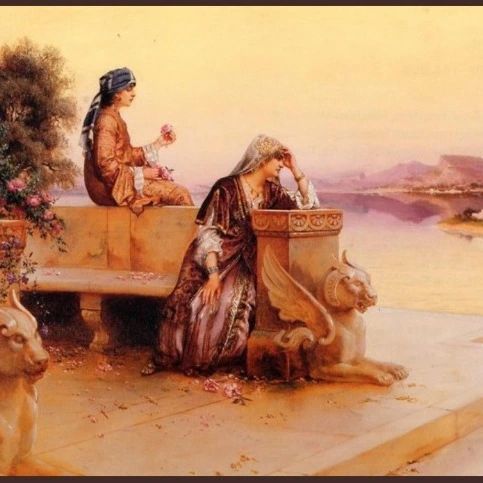#qays ibn Al-Mulawwah
Text

qays ibn al-mulawwah (tr. by me)
#qays ibn al-mulawwah#layla al-aamiriya#layla and majnun#**#poetry#arabic poetry#UPDATE#->#ill post the full translation another time
2K notes
·
View notes
Text
And I love reading Qais, Laila's Fool
[…]
I turn to you and recite his lines
"Come close, dear love,
eat from my sizzling heart!"
— Khaled Mattawa, Ismailia Eclipse: Poems, (1995)
#Libyan#Khaled Mattawa#Ismailia Eclipse: Poems#1995#Majnun Laila#Qays Ibn al-Mulawwah#Layla Al-Amiriah#Qais#Laila#Essence
8 notes
·
View notes
Text

و لمَّا تَلاقينا على ســـــــفحِ رامَةٍ
وجدتُ بـنان الـــــــعامريَّةِ أحــمرا
When we met on the top of Rama
I found Al-Amiriya [Layla] colored her fingers in red
فقلتُ خضبتِ الكفَّ على فراقنا؟
فقالت معاذ الله , ذلك ما جرى
So I asked: Did you color you hand in celebration of our separation
She replied: No, how could you think of that
ولكنَّنِــــــي لـــــــما وجدتُكَ راحلاً
بكيتُ دماً حتى بللــت به الـثرى
It's just that when I saw you leaving
I teared blood until the sand got wet
مسحت بأطراف البنانِ مدامعي
فصار خضاباً في اليدين كــما ترى
Then I wiped off my tears with my fingers
So it looks now like if I colored them with Henna
• Qays ibn Al-Mulawwah, dedicated to his beloved Layla Al-Amiriya
#poetry#arabic poetry#qays ibn Al-Mulawwah#قيس ابن الملوح#مجنون ليلى#شعر#الشعر العربي#picture is not mine
14 notes
·
View notes
Text


Arabic poetry embroidered into sleeve of an abaya
قالوا: تموت بها حبـاًً، فقلـت لهـم ألا اذكروها علـى قبـري فتحيينـي
#side note this poem isn't by mahmoud darwish#seems to be attributed to the 7th century Arab poet Qays ibn al-Mulawwah
37 notes
·
View notes
Text



—qays ibn al-mulawwah
#*#911#911 abc#911edit#buddie#buddieedit#eddie diaz#evan buckley#blood tw#useraish#alielook#userabs#tuserzee#tuserambs#useralien#tuserella#tuserrae#usertreena#useralyssas#tusersonny#userrin#userisaiah#tuserdaria#userisha#userriel#usercorinne#uservictoria#tusersimone#userhann#ajlook
584 notes
·
View notes
Text

Happy Palestinian Film Thursday!
Every Thursday I'm watching a film from Palestine. This week's film is Habibi (2011). Dir. Susan Youssef. Set in Gaza, this film is a modern retelling of the forbidden love story between 7th century Arab poet Qays ibn al-Mulawwah and his one and only Layla. It is available to watch on Netflix!
Follow the Palestinian Film Thursday Watchlist on Letterboxd 🇵🇸
107 notes
·
View notes
Text
lately i've been fixated on Layla and Majnun story.
it's a very old story, from Arab origin in the 7th century. it's a love story between an Arab poet, Qays ibn Al Mulawwah and his lover, Layla. they fell in love but cannot be together, and Qays became some sort of obsessed and crazy about Layla. the term Majnun actually means crazy and he's called that because of his love towards her.
i've gotten myself a 'retelling' of this story, The Story of Layla and Majnun by Nizami Ganjavi which i'll read of course. i wish i could get or find the poem from Qays tho :') i've only found bits but i want to read the whole poem.
i wish i could get a real copy of the book or something like that tho. i feel like reading with the material in hands feel VERY different and more fun(?) than scrolling in my phone.
15 notes
·
View notes
Note
Yo that poem in Arabic that you’re looking for, when I read it in Arabic it lists a different author than the one it says on your page in that other submission. The author I saw written was حسيب غالب and the name of the poem was شكوي but I couldn’t find an English translation either:/
one anon told me the author in that instance is a poetry reciter rather than the author themselves so that may be why! three different people so far have said the author is Qays Ibn Al-Mulawwah so will be deep-diving for translations
#ask#anonymous#if its from layla and majnun rather than a stand alone one (?) i may try to find a full translation of that!#not darwish poem
21 notes
·
View notes
Photo

ومَا النَّاسُ إِلَّا العَاشقونَ ذَوي الهَوَى ولا خيرَ فِي مَن لا يحُبُّ وَلا يَعشَقُ Sejatinya manusia adalah para pecinta. Tak ada kebaikan pada seseorang yang tak mencinta. — Qais ibn al-Mulawwah https://shope.ee/9K6DhYG1Qm https://www.instagram.com/p/CiHc-9pLgbl/?igshid=NGJjMDIxMWI=
0 notes
Text
All these ancient people writing letters to their lovers and yet I have no letter from anyone. Disgusting.
#at least give me someone to write to like damn#shit is wild#franz kafka#john keats#qays ibn al-mulawwah#letters to milena#letters to fanny brawne#layla and majnun#writers and poets#poetry#literature#🫤
127 notes
·
View notes
Text
btw im translating that qays ibn al-mulawwah poem tomorrow. you know the one who wrote the “they said you love her to death” one. yeah
8 notes
·
View notes
Text
He is not Farhad, not Nali, not Majnoon,
but by today's standards, he is
a knight in love's army, the Shah
of love because he burrowed into
my heart to help the soil breathe.
In an age of death and departure
he makes poems and laughter his home.
— Kajal Ahmad, Handful of Salt, (2016)
#Kurdish#Kajal Ahmad#Handful of Salt#2016#Farhad#Khosrow and Shirin#Nizami Ganjavi#Nali#Nalî#Majnun Laila#Qays Ibn al-Mulawwah#Layla Al-Amiriah#Qais#Laila#Eterno mio!
4 notes
·
View notes
Note
Hi! I saw your reblog on a merlin post about qays ibn al-mulawwah's poem and I wondered if you had a link to the original, or the name of a collection it's found in? I feel as if I've been looking everywhere and can't find it :( was so happy to come across your post!
Hello :)
I'm glad you liked my addition to the post! The short answer is that there isn't a collection written down by Qays himself, all you can find are collected poems written down centuries after his death. I couldn't find an English translation online to any unfortunately, the one in that post was my translation. There are few books on Amazon however.
Long answer (you don't have to read all this, I just wrote it down and didn't feel like deleting it):
Qays is an ancient Arab poet from pre-Islamic civilization times when Arab people spoke poetry instinctively, most didn't know how to read or write, just spoke the language fluently, even the rules we have for Arabic poetry today didn't exist at the time and were known instinctively by the people (these rules were written centuries later when other peoples started learning Arabic, they were written to preserve the language from forgiven influences). So, Qays' poetry was passed down orally more than anything. Of course, some was written down into books, but that was centuries after his death, even his story has multiple accounts, regardless of what orientalists have written in whatever version they thought was better. I grew up hearing his story from my parents and grandparents, that's why orientalist versions piss me off (overly romantic and exaugurated and I hate them).
That's not to say, however, that Qays' or other ancient Arabic poetry wasn't preserved as it was said. I'm not sure how to explain it, but at that time Arabic poetry was considered a sort of the only form of media there was. Arabic tribes lived in deserts where they would be separated from each other for months on end, the only form of way communication was poetry that was easy to memorize and pass on. For example, in ancient Arabic traditions (that's still practiced in some places today), if a man mentions the name of the woman he loves in his poetry, he wouldn't be allowed to marry her. That's to say, it was considered a sandal for a woman's name to be passed around in poetry among tribes.
In one story, an Arab woman was kidnapped by a Persian ruler, she spoke a poem while passing by shepherd attending his sheep nearby, he memorized the poem fully and passed it on until it reached the woman's brothers and they came to her rescue.
14 notes
·
View notes
Quote
If I had two hearts
I’d live with one of them
and let the other to be tortured by your love
but I only have one heart owned by love
Neither pleased by living nor that death is near
like a little bird in the hands of a child insulting it
suffering from the torment of death while the child plays
neither is the child’s aware of its suffering
Nor the wings of the Bird are free, that it can fly
Qays Ibn Al Mulawwah
170 notes
·
View notes
Text
Suatu ketika, Qais ditanya oleh seseorang mengenai cintanya pada Laila.
Fulan: "Apakah engkau mencintai Laila?"
Qais: "Tidak!"
Fulan: "Lantas, bagaimana?"
Qais: "Cinta adalah tali perantara. Kini, tali itu tak ada lagi. Sekarang, Laila adalah aku. Dan aku, adalah Laila."
26 notes
·
View notes
Text



- Qays ibn Al-Mulawwah
Polyamory Week | Day 7: Free Space
#bbc merlin#merlinedit#maryalot#merthur#mercelot#freylin#merthuredit#merlin#tvedit#periodramaedit#bbelcher#userstream#cinematv#filmtv#cinemapix#chewieblog#dailyshowbiz#dailytvfilmgifs
500 notes
·
View notes